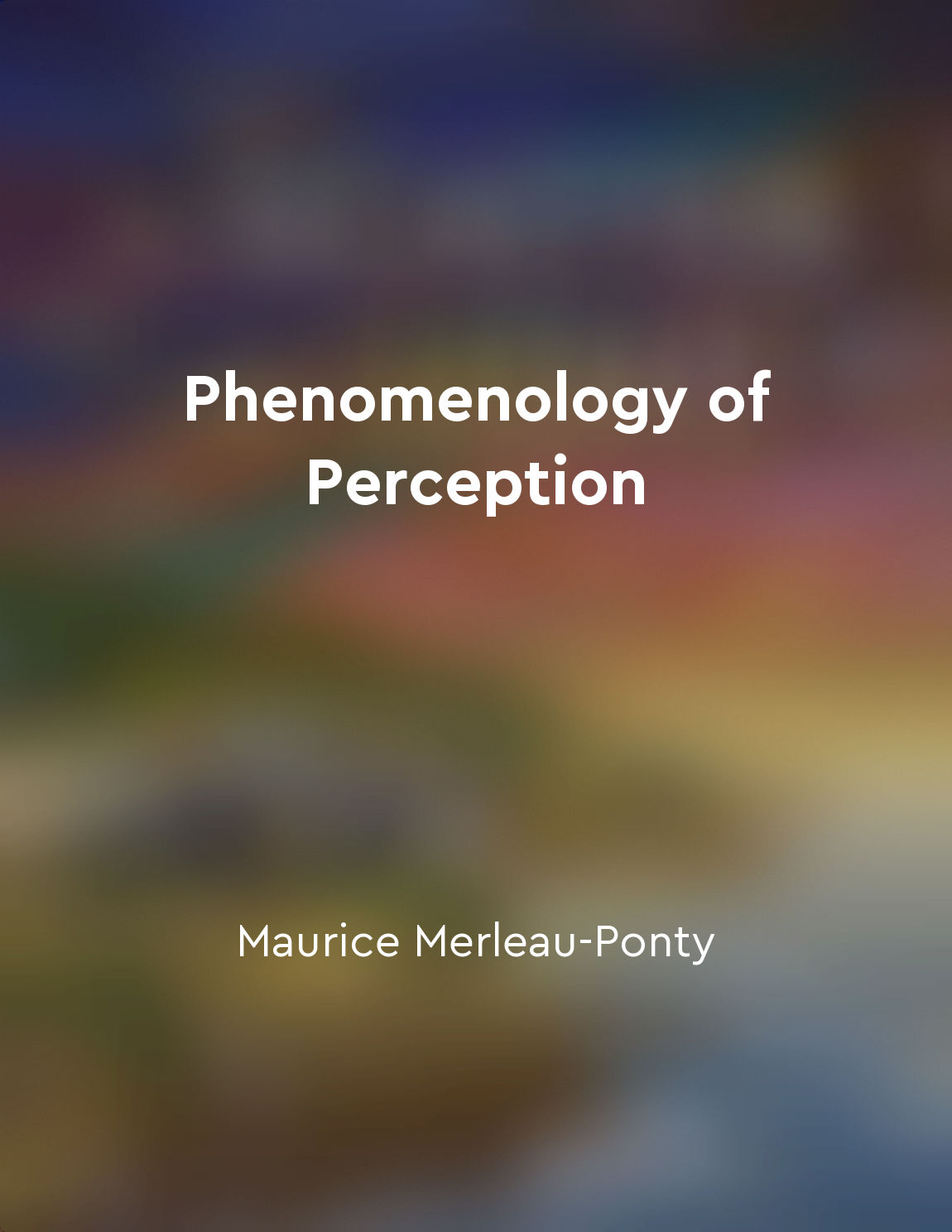Objectification enables analysis of phenomena from "summary" of Ideas for a Pure Phenomenology and Phenomenological Philosophy by Edmund Husserl
The process of objectification plays a crucial role in enabling the analysis of phenomena within the realm of phenomenology. Objectification involves the act of turning subjective experiences into objective entities that can be examined and studied. By objectifying phenomena, we are able to step back from our immediate experiences and view them from a more detached and analytical perspective. Through objectification, we are able to isolate specific aspects of our experiences and focus on them in a systematic and structured manner. This allows us to explore the various components of a phenomenon, such as its essential features, relationships, and structures. By breaking down a phenomenon into its constituent parts, we can gain a deeper understanding of its underlying n...Similar Posts
Mental images are not private pictures
The notion that mental images are not private pictures challenges the common belief that our thoughts are like internal snapsho...

The body is a site of affective and emotional engagement
The body is not just a physical entity; it is a place where emotions and feelings come to life. Our bodily experiences are inte...
Different research questions require different methodological approaches
When embarking on a research project, it is crucial to consider the specific research questions at hand. Different research que...

The body is both subject and object in perception
The body is not just an object that we perceive in the world; it is also the subject that perceives. This means that our body i...
Temporal objects are constituted by consciousness
Temporal objects, such as experiences, memories, and anticipations, are not independent entities existing outside of consciousn...
Concept of Appearance
The world of appearance is one which we all naturally and inevitably accept, but which in certain respects philosophers regard ...
